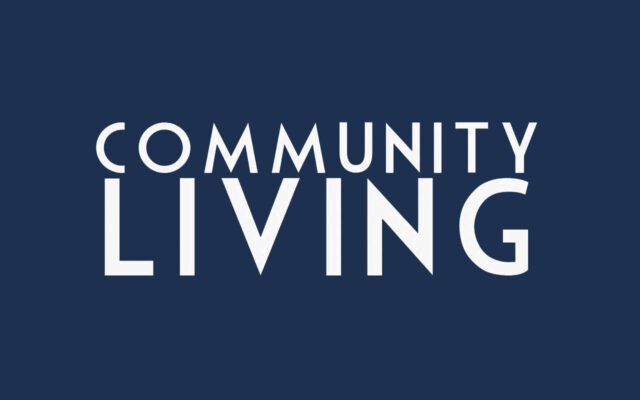Choice Support carried out research to find out how quality checking might help individuals and whether it made a difference to their support provision. Thomas Doukas reports.
STUDY TITLE: THE IMPACT OF QUALITY CHECKING ON THE LIVES OF PEOPLE WITH LEARNING DISABILITIES
Aims: The question we asked is how is Quality Checking different from professional-led approaches and how can such tools empower individuals?
Method: Questionnaire surveys and interviews of 67 people with learning disabilities employed as Quality Checkers; surveys and visits to 18 support providers across London, who had a check done in their services. We also looked at providers’ action plans after a quality check visit and followed this with a second visit. Finally, we surveyed 23 people with learning disabilities who live in the services we checked.
Background
There is very little research on ‘quality checking’ and what there is tends to be informal and limited to reports produced by organisations and support providers who employ people known as Quality Checkers.
Quality checking was first established by Skills for People, a user-led voluntary organisation working in the North-East of England to make sure disabled people can be in control of their own lives. At the beginning of the millennium, Skills for People launched ‘It’s My Life’, a set of user-led quality standards that have been widely used to check the quality of support services.
In 2002, Paradigm launched REACH, a set of voluntary standards designed to encourage good practice in supported living. The REACH standards remain the most widely recognised standards in relation to supported living.
Choice Support is a leading social care charity providing services to people with a wide range of support needs throughout much of England. Established in 1984, we aim to continuously improve the quality of our services by listening to what people want. We work directly with people and their families to shape support that truly meets their needs.
With the establishment of an involvement team in 2007 and since Choice Support has worked closely with Skills for People to employ and train over 70 people with disabilities to become quality checkers.
From February to June 2016, Choice Support carried out some research to find out how quality checking might be different from professional-led approaches (such as service audits) and how such tools might empower individuals. We spoke to some disabled people carrying out the quality checks and to some people with learning disabilities whose services were being assessed. We looked at whether this had made a difference to their individual support provision.
Findings
First, we asked the quality checkers to tell us what impact their job had on them and on other people with learning disabilities they visited in the services. Some spoke about having seen changes made as a result of the quality check they had carried out.
Others spoke about their own learning, how they had developed new skills, about the importance of having a paid job and about how their experience was appreciated and acknowledged.
For the survey, we asked the following question: How much having a job has helped you on a scale from 0-10 (0 is the lowest, no impact – 10 is the highest, a lot of impact).
Over three quarters of the people with learning disabilities who filled out the questionnaire survey said that having a job had had a lot of impact on them by scoring this 7 or above, while only 24% said it hadn’t helped them much.
The survey of service providers looked at the impact of the quality check on services. We asked them:
- Do you feel this quality check has had an impact on the residents?
- How would you rate the impact of the quality check on a scale from 0-10?
Eighteen services participated. The numbers are small because we limited the survey to services who had a quality check in the last year. We did this because we wanted to keep the data current.
Around 61% of the support providers said ‘yes’ it had had an impact on residents and 22% said ‘no’. Others didn’t answer because no recommendations were reported following the check. In answer to our second question, half of the providers rated the impact above 7 indicating a high impact on nine services. Of those who scored under 7, only one provider rated the impact as lower than 5, while 17% replied ‘don’t know’ (no recommendations were reported following the check).
At the interviews, we asked people to tell us what they thought about the quality check visit and about the report they received. Some of the themes that emerged were around the friendliness of the quality checkers during the visit, the benefit of having a peer-to-peer interview, the value of an independent report, taking on board constructive comments, and the opportunity for the residents to express their views to an external body.
Comments included:
Very relaxing. I met three people and I was comfortable. They were efficient. You could understand the questions. We spoke for 20 minutes. I didn’t mind it. Friendly souls. Easy to get on with them. (Resident)
I welcomed the quality check, having independent people and all the positive and constructive comments. We have to do audits for the local authority and monitoring for the commissioners. It’s good to have something to show to the trustees. (Staff)
Quality checking is different from service audits because the quality checks are done by people with disabilities who use their own experience and knowledge of what makes good support:
I have seen people who are not encouraged to be independent, like not being supported and involved in their own cooking. I know how my life has changed from being well supported to being more independent. It’s not good if people are not involved in individual decisions about their lives. (Quality Checker)
This means they know what to look for, and people often tell them a lot about their lives. We get a view that is often missing from quality reviews, monitoring and inspections. Quality checking leads to open and transparent service delivery, offers new safeguards, and raises quality.
Conclusions
Quality checking empowers quality checkers to develop their skills and grow in confidence in the job market. It also empowers disabled people to be in control of their lives by having the quality of their support checked. As such, quality checking is distinctive from professional-led approaches and puts the individual at the centre of their life.
KEY MESSAGES
- Quality checks are carried out by people with disabilities who use their own experience and knowledge of what makes good support
- Co-production and the inclusiveness of quality checks gives power to the individual to use their experience to shape their own support
- Peer-support based models can be highly effective
- Quality checking can have a significant impact on service delivery, offering new safeguards, and raising quality
- Being a quality checker helps people with learning disabilities to develop their skills and to grow in confidence in the jobs market.
References & further reading
http://skillsforpeople.org.uk/index.php?q=about-us/our-history
http://www.paradigm-uk.org/reach-standards/
http://www.choicesupport.org.uk/
Thomas Doukas is Head of Inclusive Research & Involvement at Choice Su




